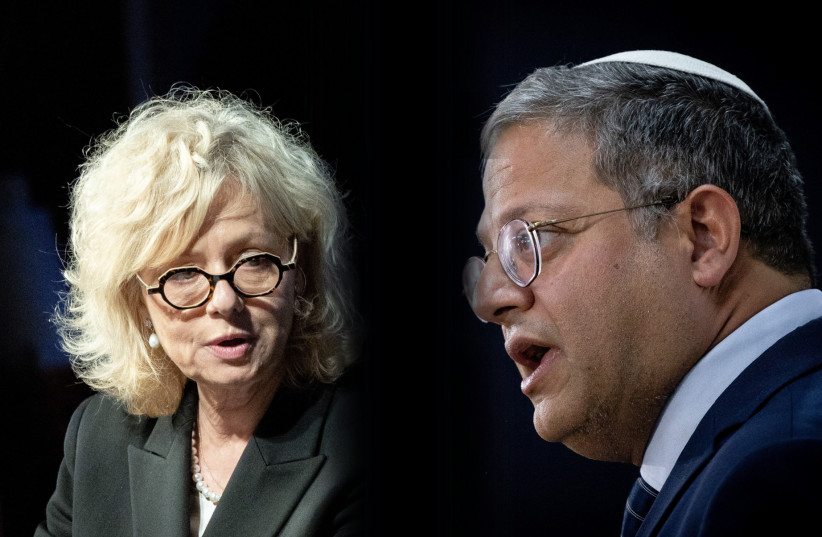A petition for an interim order to bar National Security Minister Itamar Ben-Gvir from appointing senior police officers was rejected by the High Court of Justice on Thursday.
The Movement for Quality Government in Israel filed the petition in the wake firing of Tel Aviv district commander Ami Eshed on March 9, which the NGO alleged was done over disagreement over law enforcement's response to judicial reform protests earlier that month.
Justice Yitzhak Amit reasoned that the petition was too general an application in response to the officer's transfer, which had been frozen by Attorney-General Gali Baharav-Miara on March 10.
The court concurred with Baharav-Miara's Sunday opinion that Ben-Gvir cannot use police officer appointments to influence law enforcement operations.

Joint efforts in police appointments
Amit said that police appointments "should be done in coordination between the commissioner and the minister, in accordance with the normal and accepted practice and order of things and cannot be used as a tool for indirect operative intervention in police operations," as was written by the attorney-general.
Baharav-Miara had also advised the rejection of the petition, saying that there was already legal infrastructure in place to address the issue of Eshed's improper transfer.
MQG had argued in its position that the officer's position transfer into a lower-profile job was a political move, as Ben-Gvir had wanted a stronger crackdown on judicial reform protests, and had criticized the police chief for his more lenient approach hours before publishing the new appointments.
Baharav-Miara noted that the use of appointments to influence operations would be in contradiction with legal precedent on Ben-Gvir's power to influence police operations. Both the High Court and Attorney-General's Office issued positions, on March 16 and 19 respectively, that Ben-Gvir had crossed lines by interfering in police protest responses in early March. They barred him from further interference in ongoing operations.
As part of the December Police Law, the national security minister can set general policies and principles for the police, but not give direct orders in the field.
